
 Flash News
Flash News
Theth action, resident in tears: I built on my land with my life's expenses, the state should not destroy it
Directors targeted! After Fier and Durrës, Rama arrives in Elbasan
Name/Identification of the 23-year-old found dead near Shkopet Lake
IKM action in Theth, residents come out in protest
Reported missing by his father, 23-year-old found dead near Shkopet lake
Study: Disturbing brain drain from Albania, Kosovo and North Macedonia

A comparative study on the scientific diasporas of Albania, Kosovo and North Macedonia revealed a large and disturbing brain drain from these countries. The authors of the study claimed for the Voice of America that this phenomenon is more widespread in Albania and Kosovo, and less so in North Macedonia.
The reasons for not returning for most of the respondents are the career and better life abroad, while as prerequisites for returning they list the reduction of corruption, economic and political stability, as well as investments and reforms in education.
The authors in this study call the departure of those educated at high academic levels or brain drain scientific diaspora.
They surveyed online and directly interviewed nearly 1,100 doctors and doctoral students from Albania, 427 from Kosovo and 72 from North Macedonia. The younger ages of the interviewed scientists belong to Kosovo, in relation to Albania and North Macedonia.
The co-author of the study, Russell King, from the University of Sussex in the United Kingdom, told the Voice of America that the exodus of researchers is greater from Albania and Kosovo and less from Macedonia, while the return after studying abroad is weak in Albania, but somewhat stronger in Kosovo and North Macedonia.
"We found a significant brain drain especially from Albania and Kosovo, and maybe less from North Macedonia. This is reflected in the large number of people working and studying abroad and the low level of people intending to return. Most of the scientific diaspora of Albania especially do not want to return, they are academics, scientists, who work abroad in academic institutions and private companies at high levels, they are well integrated there and the intention to return is quite low", says study co-author Russell King.
Most of the respondents say they are undecided to return to their homeland, while those who have decided not to return mostly belong to Albania. The study notes that scholars from Kosovo and North Macedonia express more desire to return to their homeland and have greater trust in the government and in their future return.
"What stands out from the study of the Albanian scientific diaspora, the desire to return is greater in Kosovo and North Macedonia, about 36 percent, but very little in Albania, about 17 percent. However, the Albanian scientific diaspora wants to cooperate to the extent of over 90 percent with the institutions wherever they are in Albania, Kosovo and North Macedonia", says Ilir Gëdeshi, co-author of the study, head of the Center for Economic and Social Studies, for the Voice of America. .
Të dhënat e studimit u publikuan sot gjatë një konference në Tiranë, e mbështetur nga CEI Central European Inititive.
Ndër arsyet për t’u kthyer të anketuarit renditin këmbënguljen e prindërve dhe familjes që ata të kthehen, mundësitë e kufizuara për karrierë shkencore dhe treg i vështirë pune në vendin pritës. Nga ana tjetër, në studim të anketuarit e doktoraturës renditin edhe parakushtet që, sipas tyre, duhet të ekzistojnë në vendin e tyre që ta mendojnë kthimin.
Në krye të këtyre parakushteve për t’u kthyer në atdhe të anketuarit renditin reduktimin e nivelit të korrupsionit, qëndrueshmërinë ekonomike dhe politike, paga më të mira, investimet në arsim dhe kërkime shkencore, reformimin e universiteteve dhe instituteve kërkimore, një siguri më të lartë sociale, forcimin e rendit publik, dhe përmirësimin mjedisor dhe infrastrukturor.
“Shumë prej të intervistuarve thanë se nuk shohin të ardhme në Shqipëri për këtë kohë, sepse shumë gjëra atje duhen ndryshuar, dhe ata renditin reformimin e universiteteve, më shumë paga dhe kushte pune, si dhe janë kritikë ndaj korrupsionit të përhapur shumë në shoqërinë shqiptare në gjithë nivelet”, tha zoti King.
Studiues me origjinë nga Shqipëria u intervistuan mes të tjerëve 873 doktorë dhe 102 studentë doktorature, nga të cilët afro 2 të tretat janë gra dhe një e treta burra.
Mes të anketuarve me origjinë nga Kosova janë 290 doktorë dhe 120 studentë doktorature, të ndarë thuajse barazim nga ana gjinore. Ndërsa mes të intervistuarve me origjinë nga Maqedonia e Veriut janë 63 doktorë dhe 9 studentë doktorature, gati të barabartë nga numrat gjinorë.
Pjesa më e madhe e të anketuarve nga të tre vendet studiojnë në shkenca natyrore, ekonomi, sociologji, mjekësi, inxhineri dhe informatikë.
Si arsye kryesore për emigrimin ata renditin studimet doktorale, të nxitura prej bursave nga institucionet pritëse në SHBA dhe Evropën Perëndimore. Po ashtu shkak janë arsyet ekonomike, mundësitë e pakta për kërkime shkencore në vendet e tyre.
Pjesa më e madhe e të anketuarve janë të punësuar në universitete dhe institucione shkencore, në firma private, institucione publike dhe vetëpunësim.
“Ata shohin një seri pengesash në Shqipëri, ndaj niveli i atyre që dëshirojnë që të kthehen është më i vogël, por ato dëshirojnë që të bashkëpunojnë me institucionet, në Shqipëri, Kosovë dhe Maqedoninë e Veriut, ndaj duhen bërë përpjekje si të ulen pengesat nga ana e institucioneve, sepse diaspora shkencore dëshiron që të bashkëpunojë. Duhet të kemi parasysh që mbi 60 për qind e diasporës shqiptare punojnë në universitete dhe institucione shkencore të vendeve më të zhvilluara të Perëndimit. Është krijuar një pasuri njerëzore nga këto 3 vende e gatshme të kontribuojë për vendin e origjinës”, tha zoti Gëdeshi.
The study notes that as far as researchers from Albania are concerned, after leaving for a first study destination such as Italy, Greece, Turkey and Bulgaria, a significant part of them move back to the USA, Canada, Switzerland and Great Britain.
While researchers from Kosovo move in a second phase from Turkey, France, Italy and Slovenia to Switzerland, Austria and Great Britain.
Researchers from North Macedonia move from Italy, Turkey and the USA as their first destination, later towards Switzerland and Germany.
However, the vast majority expressed their willingness to cooperate with the scientific institutions of their countries with joint research projects, lectures, consultations for the government and the private sector, participation in conferences, support for young students.
Like most of the Western Balkans, Albania, Kosovo and North Macedonia have had some of the highest emigration rates in Europe in recent decades.
Even possible emigration, i.e. the percentage of the population that is thinking of migrating, is also high and growing, mainly among young people, adults and those with higher education.
Albania especially stands out for the emigration of people with higher education, who, according to statistics, make up about 40 percent of emigrants. VOA
Latest news


Found dead in Shkopet Lake, 23-year-old has injuries to his throat
2025-07-09 10:41:39


Hoxha: We will have a parliament that will surpass any comedy program!
2025-07-09 10:10:32

Directors targeted! After Fier and Durrës, Rama arrives in Elbasan
2025-07-09 09:53:57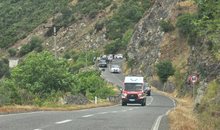
Name/Identification of the 23-year-old found dead near Shkopet Lake
2025-07-09 09:42:34
IKM action in Theth, residents come out in protest
2025-07-09 09:34:54
Reasons why the EU has not imposed new sanctions against Russia
2025-07-09 09:18:35
DW: Online scams increase human trafficking
2025-07-09 09:01:29

Reported missing by his father, 23-year-old found dead near Shkopet lake
2025-07-09 08:42:13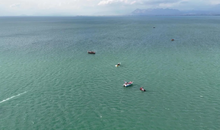

Horoscope, what do the stars have in store for you today?
2025-07-09 08:25:44
Sun and rain, Wednesday with unstable weather
2025-07-09 08:06:58
Posta e mëngjesit/ Me 2 rreshta: Çfarë pati rëndësi dje në Shqipëri
2025-07-09 07:52:02

Tabaku: Salianji bore a political cost that no one in Albania has borne
2025-07-08 22:36:15


Sekretet për të shijuar verën si një ‘profesionist’
2025-07-08 21:45:06


Albania's Waste Crisis: Toxic Smoke and Deep Governance Problems
2025-07-08 21:13:07
Alarming pollution in Fushë-Arrëz, copper factory waste turns the Fan River red
2025-07-08 21:07:14

Poll/ How do you assess the Prime Minister's intervention in local government?
2025-07-08 20:40:01
28 arrested in Italy and Spain for drug trafficking, including an Albanian
2025-07-08 20:24:14
Residents clash with police in Theth: We are on our land
2025-07-08 20:11:41
Death of 27-year-old in Lipjan, Osmani: To be investigated independently!
2025-07-08 20:06:52
Trump promises US will send more weapons to Ukraine
2025-07-08 19:54:25

EU targets health, education, police and cadastre as areas of corruption
2025-07-08 19:23:34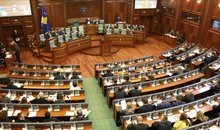


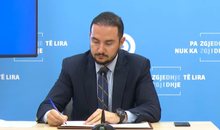

Salianji after his return: I did not oppose for functions, but for vocation
2025-07-08 18:23:15
Will he run in the 2029 elections? Here's how Salianji answers
2025-07-08 18:16:09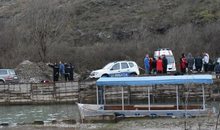
Boat captain drowns after diving into water to save two tourists in Shkodra
2025-07-08 18:05:12
Salianji from the DP headquarters: I brought a drug trafficker to justice
2025-07-08 18:03:26
After Fier, Rama "landes" in Durrës, dismissals expected
2025-07-08 17:53:32
Ervin Salianji arrives at the blue headquarters, welcomed by supporters
2025-07-08 17:45:12

EU approves final steps for Bulgaria's Eurozone membership
2025-07-08 17:43:06

Zhupa after Salianj's release: Inspiration for every opposition member
2025-07-08 17:19:39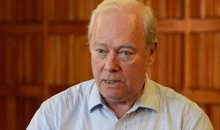
Actor David Killick passes away
2025-07-08 17:09:23



Threatened with dismissals, Rama arrives at the Fier municipality
2025-07-08 16:39:19
Extreme temperatures temporarily close Acropolis in Greece
2025-07-08 16:30:34

A plot of cannabis is discovered in Mazha, Kruja
2025-07-08 16:13:48

Republika Srpska allocates additional 22 million euros for lobbying in the US
2025-07-08 15:52:04

Spices that protect you from mosquitoes!
2025-07-08 15:30:03

Accident on the Vlora-Qeparo axis, one injured
2025-07-08 15:11:52
Berat, 17 years part of UNESCO's world heritage
2025-07-08 15:03:30
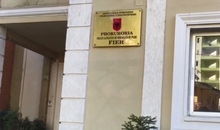

Cost of living increases, inflation rises to 2.4% in June, driven by food
2025-07-08 14:29:54
VIDEO/ Restaurant roof collapses in Italy, one victim and ten injured
2025-07-08 14:18:44
Requested release from cell, Supreme Court leaves Veliaj in prison
2025-07-08 14:07:41
TikTok shutdown/ Austrian media: Rama benefited politically from the app ban
2025-07-08 13:48:25
Acropolis temporarily closed due to heat
2025-07-08 13:31:09



Salianj's release/Berisha: He was politically condemned by Rama and Xhafa!
2025-07-08 13:00:13

Knife attack on Peshkopia Boulevard
2025-07-08 12:44:10
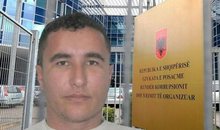

Fier Court decides on the conditional release of Ervin Salianj
2025-07-08 12:15:23
Cost of living increases, inflation rises to 2.4% in June due to food
2025-07-08 12:00:16


Requesting conditional release, Ervin Salianji arrives at the Fier Court
2025-07-08 11:16:36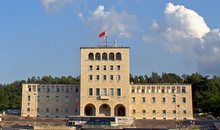
The first phase of university applications begins today
2025-07-08 11:10:52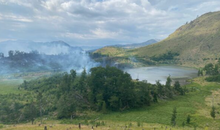
Fire in Lura, flames endanger the National Park
2025-07-08 10:53:43
Trump warns of 35% tariffs on Serbia and 30% on Bosnia and Herzegovina
2025-07-08 10:37:32
Thethi rooster and the dung cock
2025-07-08 10:24:01

Fire in Dukat endangers Llogara National Park
2025-07-08 10:01:39
International drug search: 36-year-old arrested in Durrës (NAME)
2025-07-08 09:50:48
Thethi, tourists "criticize" modern trend
2025-07-08 09:39:54
Fire on Mount Dukat still active, Llogara National Park at risk
2025-07-08 09:28:12
Veliaj's appeal to be heard today in the High Court
2025-07-08 09:16:02
"Bad sign for democracy"/ Parliament neglects reporting by institutions
2025-07-08 09:04:56
Today's hearing at the Fier Court, Salianji requests conditional release
2025-07-08 08:56:39


Horoscope, what do the stars have in store for you today?
2025-07-08 08:16:19
Weather forecast/ How temperatures will vary throughout the day
2025-07-08 08:02:37
